MH17 crash: UK pushing for more sanctions on Russia
- Published
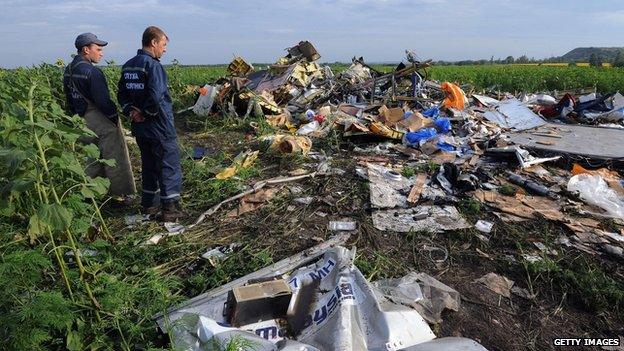
There have been concerns that international monitors have not been allowed proper access to the crash site
Britain and its EU allies will move to tighten sanctions on Russia unless Moscow's position on the Malaysia Airlines crash changes, No 10 has said.
The UK, France and Germany say EU foreign ministers "should be ready" to step up sanctions, a spokesman said.
Ukraine and pro-Russian rebels have accused each other of shooting down the Boeing 777, killing 298 passengers.
Russia's UK ambassador said sanctions would "encourage the Ukrainian authorities to continue violence".
Prime Minister David Cameron is due to speak to Russian President Vladimir Putin later and will make a statement on the crash to Parliament on Monday, Downing Street said.
Foreign Secretary Philip Hammond said President Putin and the people around him could be targeted by broadened sanctions.
'Obfuscation and obstruction'
Ten Britons were among those killed when the Malaysian plane was downed on Thursday over eastern Ukraine.
At least 196 bodies have been loaded onto refrigerated trains near the crash site, to be taken to an as yet unknown destination.
One of the rebel leaders in Donetsk says the plane's black-box flight recorders have been found.
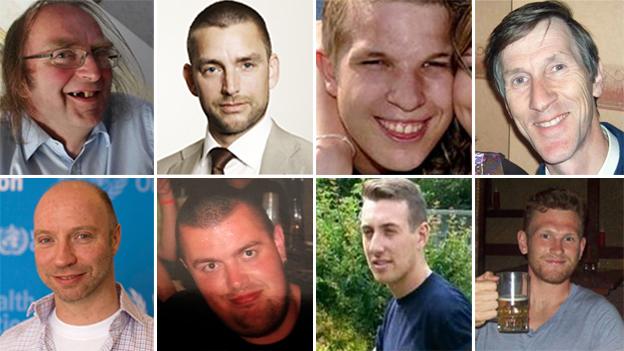
Among the 10 Britons believed to have died in the crash were (clockwise from top left): John Alder, John Allen, Robert Ayley, Andrew Hoare, Richard Mayne, Ben Pocock, Liam Sweeney and Glenn Thomas
The UK believes the plane was brought down by a missile "supplied by the Russians" and that the Russian government is not doing enough to pressure separatists who control the area to allow international access to the crash site.
Downing Street said Russia had blocked an attempt at the UN Security Council to apply further pressure to the rebels.
"It is completely unacceptable," No 10 said in a statement released after a meeting of the government's emergency Cobra committee, adding that the Russian government had claimed "there is no issue around access".
"There is one party in the world who clearly has the ability to snap his fingers and it would be done and that is Vladimir Putin," the foreign secretary told the BBC's Andrew Marr Show.
'Crony group'
Downing Street said the prime minister, German Chancellor Angela Merkel and French President Francois Hollande agreed in talks on Sunday that securing access to the crash site and ensuring specialist teams could recover victims should be top priority.
"They also agreed that the EU must reconsider its approach to Russia and that foreign ministers should be ready to impose further sanctions on Russia when they meet on Tuesday [at the Foreign Affairs Council]," a spokesman said.
Germany has previously rejected tougher sanctions against Moscow.
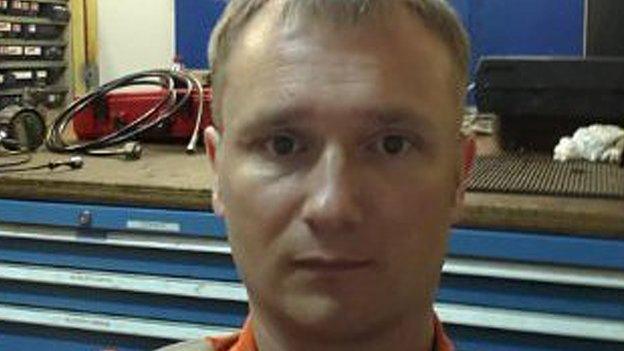
Scot Stephen Anderson was the last of the British passengers believed to be onboard to be named
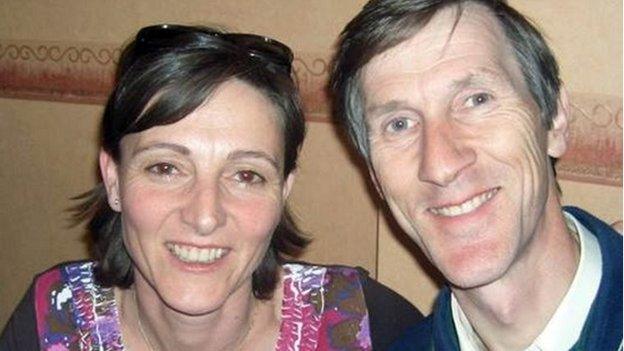
Andrew Hoare and his Dutch wife Estella were among the passengers on flight MH17
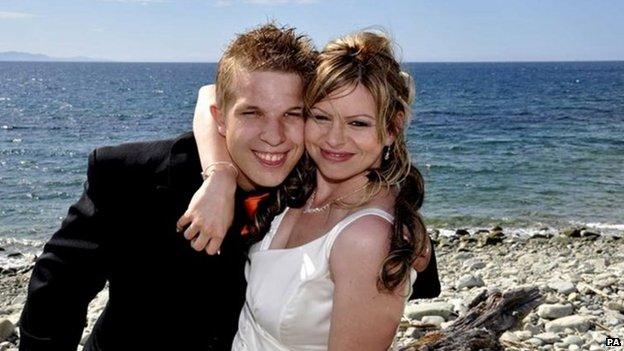
Robert Ayley's family released this picture of him with his wife Sharlene
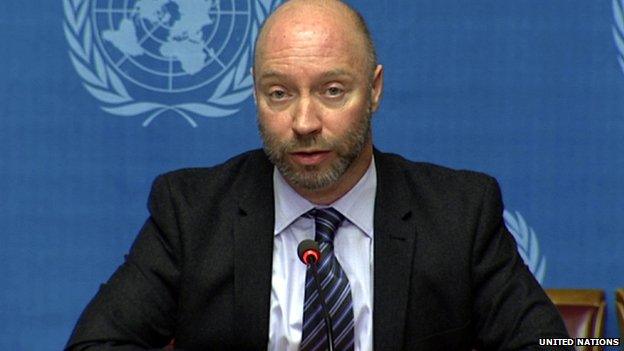
Glenn Thomas was travelling to Australia for an international conference
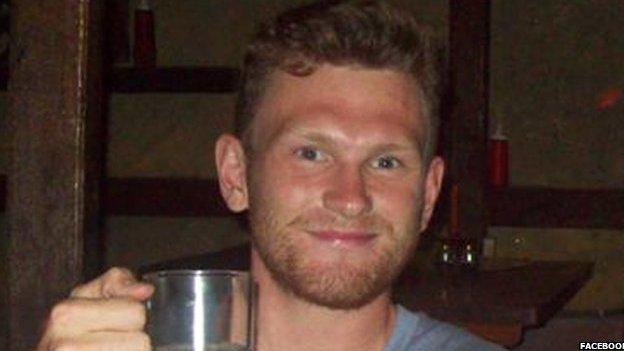
Tributes have been paid on social media sites to University of Leeds student Richard Mayne
Later Mr Hammond acknowledged any sanctions could hit London's economy, home to much of the £27bn worth of Russian investment in the UK.
And he insisted Britain could not act alone: "The pain has got to be shared across the European Union."
The US and EU had already brought in sanctions against Russia over its involvement in Ukraine; these were increased shortly before Thursday's disaster.
But potential barriers to tougher European-wide economic sanctions are said to include French arms sales to Russia and German gas imports from the country.
Mr Hammond told BBC Radio 4's World This Weekend one option was to include "the so-called crony group around President Putin" in any sanctions.

Analysis, Theo Leggett, business reporter, BBC News
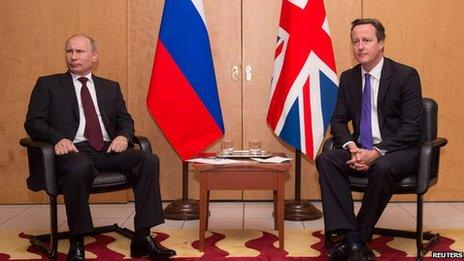
The EU is Russia's biggest trading partner, so if it had the will, Brussels could inflict considerable economic damage on Moscow. But Europe would also feel the pain.
That's why European sanctions so far have been measured, largely targeting individuals with asset freezes and visa bans.
The energy market is crucial. Europe gets about a third of its gas from Russia. If the EU bought less Russian gas, it would certainly harm the country's economy, which is very reliant on sales of natural resources.
But replacing those supplies would be very difficult in the short term, and expensive. Likewise, there is a risk that Russia could retaliate against sanctions in other areas by restricting gas exports.
Britain also has a great deal to lose if sanctions are tightened. Russia is a significant buyer of UK exports. Oil giant BP owns 20% of Russian energy firm Rosneft, which also benefits pension funds which have invested in BP.
London is a prime destination for Russian businesses seeking investors and capital, providing lucrative fees for banks, consultants and lawyers, and Russian oligarchs own large chunks of prime London real estate.

Russian ambassador Alexander Yakovenko was summoned to the Foreign Office on Saturday to discuss Russia's response to the crash.
"The Russian ambassador stressed that it is counterproductive for governments to announce their versions of the disaster, as this amounts to putting pressure on the future investigation," the Russian embassy said following the meeting.
Identity fraud
Six UK air accident investigators have been sent to the region and two Metropolitan Police officers arrived on Sunday to assist with identifying and recovering the bodies of those killed.
The Met experts "stand ready to move on to the crash site," Downing Street said.
The Foreign Office is helping to provide transport, accommodation and translators for grieving families wishing to travel to Kiev or Amsterdam.
"We are also working with family members to protect victims from the possibility of financial and identity fraud," Downing Street added.
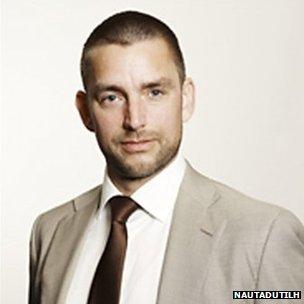
John Allen was one of 10 British victims of the crash
All 10 British victims believed to have been on board have now been identified. The final victim is understood to be 44-year-old Stephen Anderson, a drilling technician who worked for Maersk Drilling.
One of the British victims - John Allen, 44 - died alongside his wife Sandra and sons Christopher, Julian and Ian - who are listed in the passenger list as having Dutch nationality - his law firm said.
Fifty-nine-year-old banker Andrew Hoare also died, along with his Dutch wife and their two children, Jasper, 15, and Friso, 12.
The family, who lived in Luxembourg but made frequent visits to England, had been on their way to Malaysia for a holiday.
His brother Hugo said Somerset-born Mr Hoare was a "devoted family man".
"He's one of the nicest guys you could ever meet. His smile could light up a room," he said.
The families are believed to have died along with Britons Robert Ayley, John Alder, Liam Sweeney, Glenn Thomas, Richard Mayne, Ben Pocock, and Cameron Dalziel, who was born in Zimbabwe but travelling on a British passport.
Meanwhile, a Newcastle-based charity, the Percy Hedley Foundation, which has been looking after a child feared to have lost family on MH17, said it had received confirmation this was not the case and the relatives were safe.
